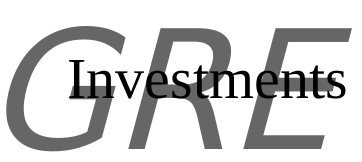How much is the Greek market at risk as a whole from the trend in real estate? An alarm has sounded in the real estate market about the possibility of a “bubble” in real estate. As prices continue to increase, at the first quarter of the year home sale prices compete at double the rate of growth.
The properties
The figures are revealing, according to which the sales prices of newly built apartments currently exceed 3,000 euros/sq.m. and are around 4,000 euros/sq.m. in most areas of Attica. This means that the acquisition of a property, 100 m2, costs around 380,000 – 400,000 euros, an amount that certainly few can afford, even if they resort to bank loans, which are also prohibitively high today. The large increase in the prices of newly built houses is due to the rise in construction costs due to the war in Ukraine, but also to the increase in labour, as there is a huge demand for trained workers and very little supply. As a result, manufacturers pass this cost on to buyers, raising prices to maintain their profit. Real estate people appear reassuring and insist that there is no danger in Greece. The “clouds”, as they say in the OT, concern mainly the mature markets abroad and not us. In our country, they argue, sales prices remain at tolerable levels. A catalytic role, they argue, will be played by increasing the threshold for obtaining a Golden Visa to 500,000 euros in popular areas. Something that is estimated to drastically reduce the demand from abroad for the purchase of housing. especially in large urban centres, where the biggest problem is observed.
The ECB
Since last summer, the European Central Bank (ECB) has increased interest rates and, as everything seems, is preparing to make new increases. “The European Central Bank’s fight to curb inflation is not over and more action is still needed,” Christine Lagarde has stressed. Several ECB officials have warned that interest rate hikes may need to persist beyond the summer to ease inflation. After hikes of about 375 basis-points, economists expect two more quarterly increases – through July – but the risk that more aggressive monetary tightening will be extended for longer is growing.
The IMF
The IMF in its latest thesis on Europe said that there will be “unpredictable” house price corrections which carry the risk of having the opposite of the desired results. The fund notes that a downward price correction is already underway in a number of European countries, but adds that this decline could accelerate under pressure from central banks to raise interest rates. “Unforeseen corrections in housing markets could occur even if broader economic distress is avoided. A housing market correction is already underway in some European countries, for example, the Czech Republic, Denmark, as well as Sweden where house prices fell by more than 6% in 2022,” it said. The IMF warns that “the fall in house prices could accelerate if markets re-evaluate inflation risk and financial conditions become tighter than expected. In that case price cuts would have a negative impact on family fortunes and bank balance sheets.” Mortgage rates are also rising as central banks raise interest rates to combat inflation. As a result, mortgage holders will have less disposable income and, in some cases, could even reach the point where they cannot repay their loans, with all the negative consequences. “Empirical models linking house prices to fundamentals suggest ‘inflated’ values by 15%-20% in most European countries. Therefore, with mortgage rates continuing to rise and real incomes being reduced by inflation, mortgage prices have been falling of late in many markets,” the Fund says.
Source: Andromachi Pavlou, 26/5/2023
https://www.ot.gr/2023/05/26/oikonomia/akinita-pote-teleionei-to-rali-stis-times-giati-to-dnt-xtypaei-kampanaki-gia-fouska/
